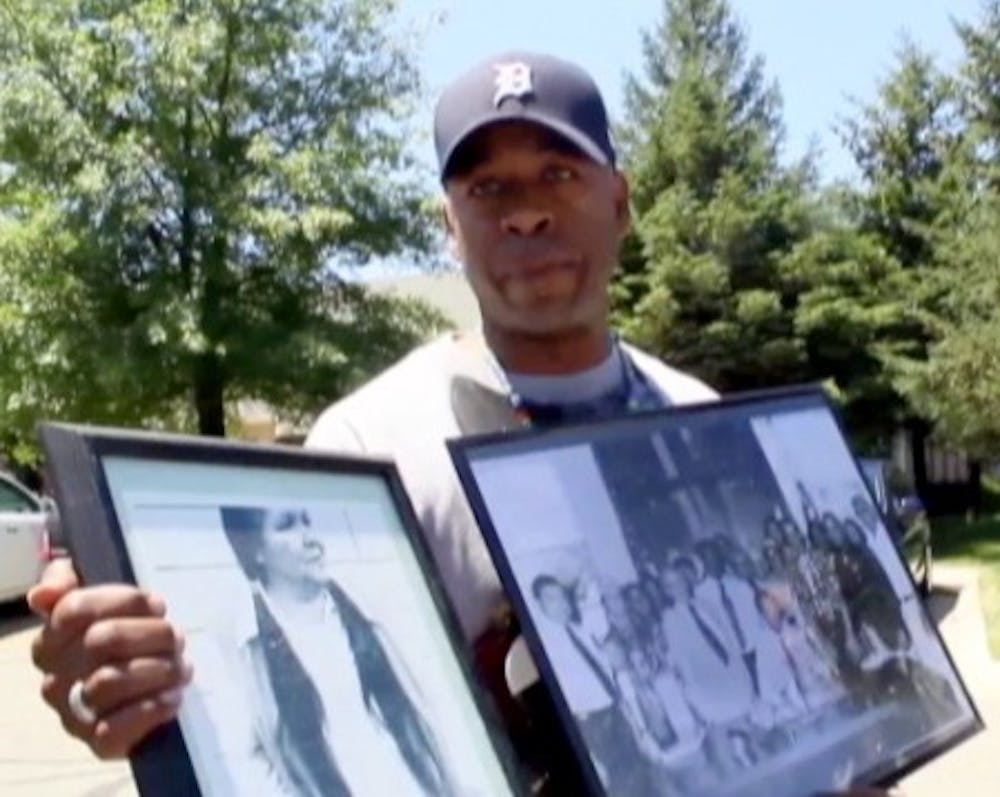Tribal court hears argument to dismiss reopened disenrollment cases
If the Tribal Council of the Saginaw Chippewa Indian Tribe has their way, some 234 members who call themselves Saginaw Chippewa may be cut off from their culture and the benefits of tribal membership.
On Thursday, a hearing was held by the Tribal Court's Office of Administrative Hearings to determine if the tribe had legal standing to reopen past cases of "disenrollment," the proper term for kicking out members of the Tribe.
While a quarter of the 234 members facing exile are dead, the family and friends of the remaining 169 members gathered outside the courthouse to display their anger and frustrations about actions they say will take everything away from them – including their heritage.
"It's just disgusting that they would even think of disenrolling my grandmother while she's gone," said Jesse Edward Helms, 43, who lives on District 1 tribal land. "She can't even fight her own battle. She would have won."
Out of the 169, only 24 members were allowed to attend the hearing. Paula Fisher, the lawyer representing the 234 members, was given one hour on Thursday afternoon to make her case.
Fisher argued because of a prior ruling, reopening of cases directly went against an order protecting these individuals from future disenrollments.
That order is known as Ordinance 14. Fisher also made a motion prior to the hearing which would allow all of the members to be inside the building. That motion was denied.
Fisher said her argument will likely fall on deaf ears.
The issue stems from a recent decision by the Tribal Council to reopen closed cases from 2009, which were initially thrown out by then-Chief Federico Cantu, Jr.
Cantu ruled that the cases against members slated for past disenrollment cases could not be reopened with prejudice.
Tribal leadership changes every two years, shifting political allegiances and political philosophies about who should and who should not be recognized as a member of the Saginaw Chippewa Indian Tribe.
Historically, the confusion about membership comes from a period of open enrollment in 1986 that specifically allowed members to trace their descent collaterally. Collateral descent means tracing your lineage and connection to the tribe through an uncle or great-aunt as opposed to a member's grandfather or great-grandmother.
Lineal and collateral descent are two out of the four ways required to be called a member of the Tribe. The descent portion is based on a number of lists compiled of native people dating back to 1939.
Fulfilling the other two, a person must have at least 1/4 blood quantum, or 1/4 Native American blood, and must be able to trace back to the three original Michigan tribes: the Saginaw, Swan Creek and Black River tribes.
Frank Cloutier, the public relations director for the Saginaw Chippewa Indian Tribe, told Central Michigan Life last week that the Tribe is not commenting on the cases because it is treating the disenrollments as an issue of employment.
Due to the Tribe's silence on the matter, the motivation for reopening the cases remains unknown. However, some feel it has to do with the Tribe's decreasing revenues in the trailing wake of the national recession.
Tribe members have seen their per capita checks decrease in recent years, which acts as the sole source of income for some members of the tribe.
John Wheaton, 48, of Burt, said he believes it's all about the money and not about maintaining bloodlines. Wheaton is facing disenrollment.
For him, the current members of the Tribal Council are changing the rules to help increase the Tribe's bottom line.
"My civil rights are being broken," he said. "This Tribe thinks it can do whatever they want. How is that just? They're taking away my heritage. They're saying that I'm not a part of this tribe. If they disenroll the people they're trying to disenroll, it will increase their bottom dollar."
Helms said besides the per capita checks they could receive with tribal membership, things such as housing, education and healthcare could be wiped out for those kicked out of the tribe.
At the end of the hearing, Fisher said the OAH did not issue a decision from the bench, yet she expects the decision by late Friday or sometime within the next week.
The next steps depend on what the OAH decides. If the office does grant the Tribal Council's motion to reopen the cases, Fisher has a chance to appeal on behalf of her clients. Conversely, if the office denies the motion, the Tribal Council also has a chance to appeal, Fisher said.
Those facing disenrollment are hoping that the case is thrown out, or that the council ceases their attempts to disenroll them.
"(They're losing) their ability to pass down their tribal membership to their children and grandchildren, to affect their Tribe and to stand proud in front of their Tribe," said Sharon Cole, 57, of District 1 and a relative of Helms.
Echoing Helms, Christine Otto-Reed, 82, of Flint, said that if those deceased members facing enrollment were still alive, the protest outside the courthouse would have been larger and admittedly more powerful.
"(A decade) ago, we had 50 times this amount of people, but most of them (are) dead now," Otto-Reed said. "If you could bring them back, you could put them all to shame."
Check back with cm-life.com for more on this story.




